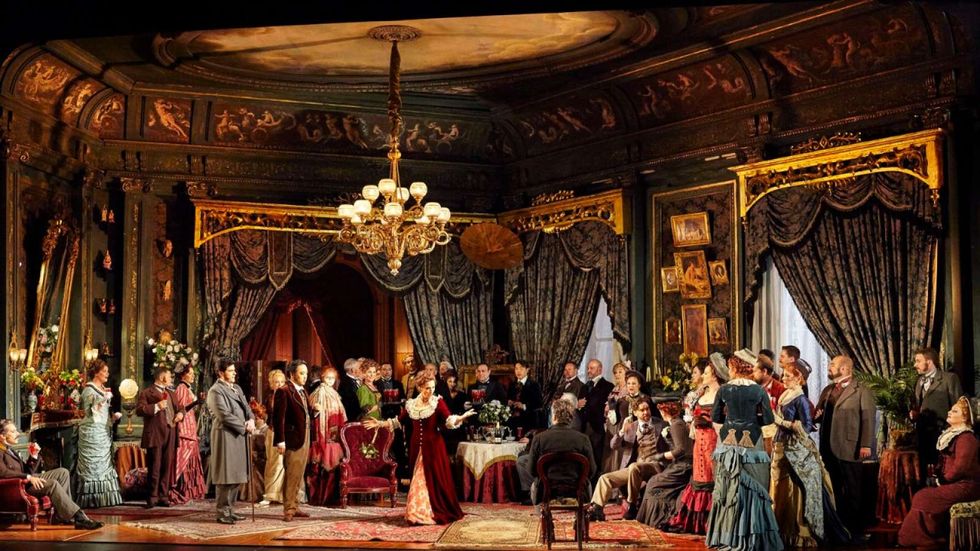Opera truly is an acquired taste. Most of the people I've met who like it are over 50-years-old, and rarely just like it. They love it-- they know all the details of their favorite operas, go to them whenever possible, and never fail to have their own interpretation of how a certain character really feels in any given opera.
To enjoy opera, there a few aspects of character that the art necessitates. First and foremost, you must be patient. There is no world in which an impatient person is going to be able to sit through Wagner's Tristan und Isolde, not all five hours of it anyway. There are far too many long, drawn-out fiddly bits for someone with a short attention span to hold on for long.
Secondly, you have to have a healthy sense of drama. If you're not a theatre person in general, you probably won't be an opera person. The amount of emotion that the characters feel in operas is so extreme that it is hard to imagine it happening in real life. If you are someone who feels skeptical of fantasy books and doesn't like movies with lots of drama in them, it's unlikely that you'll want to watch too much of any opera. They all have a penchant for extremes.
While there are some who feel that the only way to listen to opera properly is to be able to see it performed, many people really like just listening to it because, for them, the composition and vocals are the main draws to opera. If you don't like vibrato in your singing, or you prefer a song to be less than seven minutes long, opera probably isn't for you. While there is the occasional Mozart aria that only goes on for the length of a typical pop song, this is not the norm for much of opera. Usually, the aria has to go through several stages, with other characters popping in and out of it, before it can be drawn to a close.
One of the hardest things for some people about operas (especially people college-age and below) is the recitative that weaves in and out of many of the most famous ones. If arias are the speeches in operas, then recitative is the conversation. It's a kind of spoken singing, that often connects two arias together. Most of the people that I know find this to be the most tiresome part of any opera, and a few I took an opera survey class with actually fell asleep in class during the recitative sections. It isn't the most interesting part of opera, but opera consists of a lot of it, so if you can't deal with it opera might not be for you.
You'd think that if you like musicals, you'll probably like opera. It's all singing on stage right? Technically yes, but in many cases people who like musicals can't stand opera, and definitely vice versa. Opera is an ancient art form, and musicals are a very new one, so it's unsurprising that those two worlds aren't always mutually inclusive. However, if you like opera it can give you hours of enjoyment and educate you on old stories, myths, and original tales written by the composer or librettist. The opera crowd can be hard to deal with at times (there are many old ladies who once were operatic vocalists, and they usually think they're much better than everyone in any given situation) but if you can get behind all the supposed drawbacks, you might find that those same aspects of the art are actually quite enjoyable.








































